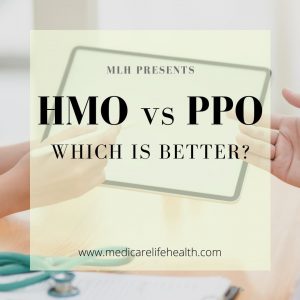Medicare and Medicaid Difference Guide

The Medicare and Medicaid Difference Guide helps you understanding both services, so you can make the best decisions for yourself and your loved ones.
The United States has two separate national health care systems: Medicare and Medicaid. The government created the two programs for two different kinds of people. However, they often overlap. Let’s look at both programs, including their similarities and difference. We will also look at who needs or qualifies for each program.
Let’s Start with Medicare vs Medicaid.
What is Medicare?
Medicare is the U.S. national health care program that provides seniors age 65 and older, and some disabled people, with health insurance.
The U.S. government started the program in 1966. The Centers for Medicare and Medicaid Services runs these programs. Medicare also covers people with end stage renal disease and amyotrophic lateral sclerosis.
Medicare does not cover all of the costs associated with health care. As a result, people with Medicare will also use a Medicare Supplement Insurance Plan (Medigap Plan) or a Medicare Advantage Insurance Plan to round out their care coverage.
Please read our Ultimate Guide article on “What is Medicare.“
What is Medicaid?
Medicaid is the United States National Health Care System that provides health coverage to over 64.7 Million People.
The program was created for people with low-incomes that cannot afford, or do not have access to, private healthcare insurance.
How are the programs similar?
The programs are both National Health Care Systems. In fact, they are the only two nationalized heath care systems the United States has. Many other countries around the world have much more extensive national coverage for their citizens. The U.S. has a limited program for specific age, income, and health groups, and the rest of the country relies on private health insurance.
In addition, both programs cover specific hospital services, doctor services, and other health care related services.
Medicare has four parts. First, Medicare Part A, also known as “Hospital Insurance,” helps with coverage regarding: inpatient care, home health care, nursing facilities, and hospice.
Second, there is Medicare Part B, also known as “Medical Insurance.” Part B helps with coverage related to doctor and other provider services, including: doctors visits, health care providers, outpatient, prevention services, and medical equipment. Medicare Beneficiaries pay for Part B.
Finally, Medicare has a Prescription Drug Program that is administered by private insurance carriers. Click here to lean more about What Medicare Covers and Medicare Parts A, B, C and D are.
Both Medicaid and Medicare Advantage Plans can be set up as managed care plans with networks of doctors and hospitals members have access to. If you would like to learn more about how these networks work, please read, HMO vs PPO – Which is Better?
How are the programs different?
One of the biggest differences between the two programs is who runs them. Medicare is run on a national level, by the Federal government. On the other hand, Medicaid is run by each state individually.
Of course, the biggest difference is the the different populations the programs serve:
- Medicare – For Seniors over age 65, and some disabled people
- Medicaid – For people with low income and few resources
Medicare and Medicaid Differences in Beneficiaries – Who Gets What Program?
The U.S. government created Medicare and Medicaid to take care of different “vulnerable” populations – the poor, the disabled, and the elderly. Let’s look at each program and population.
Who should get Medicare?
Anyone who is a citizen or qualified resident of the U.S. can enroll in Medicare when they turn 65 years old. There is a seven month window of time starting three months before turning 65, the month of your birthday, and then three months after your birthday month.
How do I Sign-up for Medicare?
First, you may be automatically signed-up if you are already receiving Social Security (SS) or Railroad Retirement (RRB).
Second, if you are not already receiving SS or RRB benefits, you must sign up for it when you turn 65 years old.
Conversely, if you are not ready for Medicare when you turn 65, you must notify the government that you want to delay your benefits. If you do delay, it must be because you have credible coverage in place. An example of this would be an employer plan.
Click here to read more about Medicare, including where to go to enroll.
From Our Article What is Medicare? A Guide to All Medicare Basics
Supplemental Medicare Insurance Options
Medicare picks up about 80% of the health care costs for its beneficiaries. For the other 20%, seniors turn to either Medicare Supplements (aka Medigap Plans) or Medicare Advantage Plans. Click here to read our article on Medicare Advantage vs. Medigap, or see the informational articles below.
Who should get Medicaid?
Medicaid is for people with limited income and resources. Medicaid is run on a state level, not on a federal level. As a result, in order to qualify for Medicaid, you will need to determine what your state defines as a qualifying income level.
How Do You Enroll in Medicaid?
Again, since Medicaid is run by State Governments, you will need to contact your state’s agency to start see if you qualify to enroll.
You can find a list of State Agencies here on the Medicaid.gov website.
Who Can Get Both Medicare and Medicaid?
People of any age who have certain qualified disabilities and people over 65, who are also below their states Medicaid income levels, can qualify for both Medicare and Medicaid.
For example, Henry is a 55 year-old disabled man who is also unemployed and living below the poverty level set by his state. Consequently, he would most likely qualify for both Medicaid (because of his income level) and Medicare (because of his qualified disability).
People that qualify for both programs are called “Dual Eligible.”
Who Can Help?
Navigating one (let alone both) of these systems can be confusing. But there is help available.
- If you need help with Medicaid or need to enroll in Medicaid only, then contact your state agency directly.
- If you need help enrolling in Medicare, then you can contact CMS and Social Security in the following ways:
- BY PHONE: If you need to sign-up for Medicare, you can call Social Security at 1-800-772-1213.
- ONLINE: Additionally, you can also visit CMS online at ssa.gov/benefits/medicare if you need to sign yourself up.
- RAILROAD: Finally, if you are on Railroad Retirement Benefits, you will need to notify the local Railroad Board (RRB) office before you turn 65 that you would like to sign-up for Medicare. You can sign-up 3 months before you turn 65 even if you are not planning on retiring at 65. You can read more about Railroad requirements in our article here.
- Finally, if you need help finding a Medicare Supplement or Medicare Insurance Plan, or if you are dual eligible for both Medicare and Medicaid, then please contact an Insurance Agent. An Independent Medicare Insurance Agent will help you explore your options, and help you make the right choice for your unique situation.
- You can contact your author Carly Cummings here, for assistance if you live in Nebraska or Iowa.
- Or, if you live in all other 48 states, you can find an agent in your area here.
Further Helpful Reading


How to Dispose of Old Medications

Does Medicare Pay for Dentures

Is Acupuncture Covered by Medicare

What Does Medicare Cover?

Does Medicare Cover Chiropractic Care?

Does Medicare Cover Cataract Surgery

Medicare Part B Premium 2021 Changes

Does Medicare Cover Ambulance Services?

Best Hearing Aid Alternatives

HMO vs PPO Which is Better?

How Long Does Medicare Pay for Rehab?

Does Medicare Pay for Stem Cell Therapy?

What is MAPD?

Attained Age vs Issue Age

What is Medicare Plan G?

What are Part B Excess Charges?

How to Apply for Medicare

How Much Does an MRI Cost?

What is Medicare Plan F?

Medicare Easy Pay

Medicare and Medicaid Difference Guide

Is Medicare Plan F Going Away?

Renew Active vs Silver Sneakers

What is Silver Sneakers?

What Medicare Part A Covers

What is the Medicare Donut Hole?

2020 Part B Deductible / 2021 Part B Deductible

Qualities of a Good Insurance Agent

Medicare Open Enrollment

Railroad Medicare

Does Medicare Cover Hearing Aids?

Medicare and You 2020 & 2021

Medicare Part A B C D

Medicare For All Explained

5 Biggest Medicare Mistakes

How Much Does Medicare Cost?

Using an Independent Medicare Insurance Agent

Medicare Penalties For Late Enrollment

What is AEP? Medicare’s Annual Enrollment Period
Medicare Questions “FAQ’s”

Part D Prescription Drug Plans

Medicare Advantage vs Medicare Supplement

What is Medicare Advantage

What are Medicare Supplements?




6 thoughts on “Medicare and Medicaid Difference Guide”